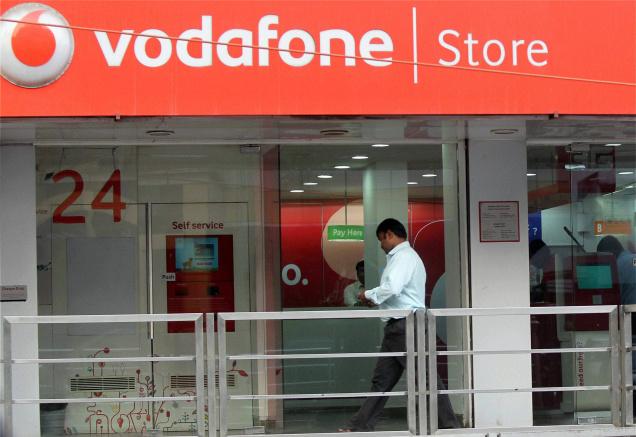Vodafone Idea’s Battle for Survival; AGR Penalty and the Supreme Court’s Crucial Verdict
Vodafone Idea (VI), finds itself at a critical juncture, facing an existential threat stemming from a substantial Adjusted Gross Revenue (AGR) penalty and the accumulating interest on this penalty. The looming financial crisis has prompted VI to take the extraordinary step of filing a curative petition with the Supreme Court of India, emphasising the profound implications of the 2019 judgment on the company's very survival.

Vodafone Idea (VI), one of India’s prominent telecommunications giants, is currently teetering on the edge of an existential crisis; at the heart of this crisis lies the looming Adjusted Gross Revenue (AGR) penalty and the interest accrued on this penalty.
In its curative petition filed with the Supreme Court, VI has raised serious concerns about the potentially catastrophic financial impact of the 2019 judgment and its ability to jeopardise the company’s very existence.
A Legal Battle of Consequences
In September 2023, Vodafone Idea filed a curative petition with the Supreme Court, emphasising the severe consequences of the AGR penalty and the interest associated with it.
VI argues that these penalties are not just excessive but also unjust and unsustainable; the penalties, it contends, have grown to such an extent that they now eclipse the original principal AGR amount owed by the company.
The Crux of Vodafone Idea’s Appeal
VI’s plea revolves around two pivotal issues:
1. Immovable Demands: VI is challenging the inflexible stance taken by the court regarding demands made by the Department of Telecommunication (DoT).
The court’s ruling essentially considers these demands as final and unalterable, even in cases where there are clear clerical or arithmetical errors in the calculation of dues.
VI believes this lack of flexibility is deeply unfair, forcing the company to make payments without possibly rectifying errors.
Penalty and Interest: VI argues that the Supreme Court imposed a penalty and interest on the penalty based on the assumption that VI did not have a genuine intention when contesting the definition of Gross Revenue and AGR.
VI strongly asserts that its dispute with the DoT is legitimate and points to the Telecoms Dispute Settlement and Appellate Tribunal (TDSAT) ruling in its favour as evidence; VI characterises these penalties as draconian and claims they pose a direct threat to the company’s very survival.

The Origin of the AGR Dispute
The AGR dispute has its roots in the National Telecom Policy (NTP) of 1999, which permitted telecom companies to calculate their license and spectrum fees as a percentage of their annual income.
However, disagreements arose over the definitions of Gross Revenue and AGR, sparking a protracted legal battle.
TDSAT’s 2015 ruling favoured the telecom companies, stating that AGR should only include revenues generated from the telecommunications business.
Nonetheless, in a significant turn of events in 2019, the Supreme Court overturned this decision, ruling that AGR should be calculated based on a company’s total revenue, regardless of its relevance to telecommunications; the judgment resulted in a staggering AGR liability, with VI alone owing Rs 58,254 crore to the government.
To add insult to injury, the Supreme Court imposed penalties on the companies, arguing that litigants should not be allowed to benefit from inconsistent and untenable positions taken during litigation.
VI, along with Bharti Airtel and Tata Teleservices, found themselves grappling with massive AGR dues that had accumulated over years of legal disputes.
In 2020, the Supreme Court provided some relief by granting a 10-year timeframe for payment; however, in 2021, the Supreme Court rejected VI and Bharti Airtel’s plea for a reevaluation of the dues, further deepening VI’s financial woes.

The Significance of the Curative Petition
A curative petition is a last-resort legal option used when the Supreme Court dismisses a plea for a judgment review. VI’s decision to file a curative petition accentuates the gravity of its situation and the urgent need for a resolution.
VI is seeking to reverse aspects of the judgment that it believes could lead to a miscarriage of justice; on the other hand, VI’s stock performance reflects the market’s anticipation of the outcome, with shares rising 2.2% following the Supreme Court’s decision to consider the AGR dues plea.
Challenges Ahead; VI’s Financial Crisis
VI’s financial crisis extends beyond the AGR dispute; several key challenges contribute to the company’s precarious position:
- Tariff Confusion: VI has struggled to define a clear tariff strategy, leaving investors and customers uncertain about its direction.
- Lack of Investments: Despite rumours of potential investments, VI has yet to secure concrete funding, raising concerns about its ability to meet financial obligations.
- Subscriber Loss: VI has seen a consistent decline in subscribers, further impacting its revenue.
- Mounting Losses: With significant losses reported in Q2 FY23, VI faces the daunting task of recovering and generating profits in a competitive market.
- Upcoming Debt Repayments: VI must find ways to cover its debt repayments, including AGR and spectrum obligations, to stay afloat.
Competition in the Telecom Industry
VI is operating in an intensely competitive telecom market in India, with established players like Bharti Airtel and Reliance Jio continually expanding their subscriber base and investing in network infrastructure.
Therefore, VI faces an uphill battle to retain and attract customers, and the financial strain caused by the AGR penalty has further increased the challenges of staying competitive.
While VI’s financial challenges are substantial, the company is exploring various avenues for survival; these include seeking additional investments, revising its tariff strategy, and focusing on enterprise services to diversify its revenue streams.
Industry Trends and Regulatory Changes
The telecom industry is undergoing rapid changes, with the rollout of 5G technology and potential regulatory shifts, and VI’s ability to adapt to these changes and leverage new opportunities will play a crucial role in its recovery.
Moreover, any regulatory reforms related to AGR calculations and penalties could impact not only VI but the entire telecom sector.
The Last Bit, Vodafone Idea’s existential threat due to the AGR penalty and interest on the penalty is a matter of grave concern.
VI’s curative petition signals the company’s desperation for a resolution to its financial woes as it currently faces multifaceted challenges, including subscriber loss and mounting losses, combined with the AGR burden, make its future uncertain.
VI’s fate now rests in the hands of the Supreme Court, and its ability to survive and thrive in India’s fiercely competitive telecom industry hangs in the balance.





